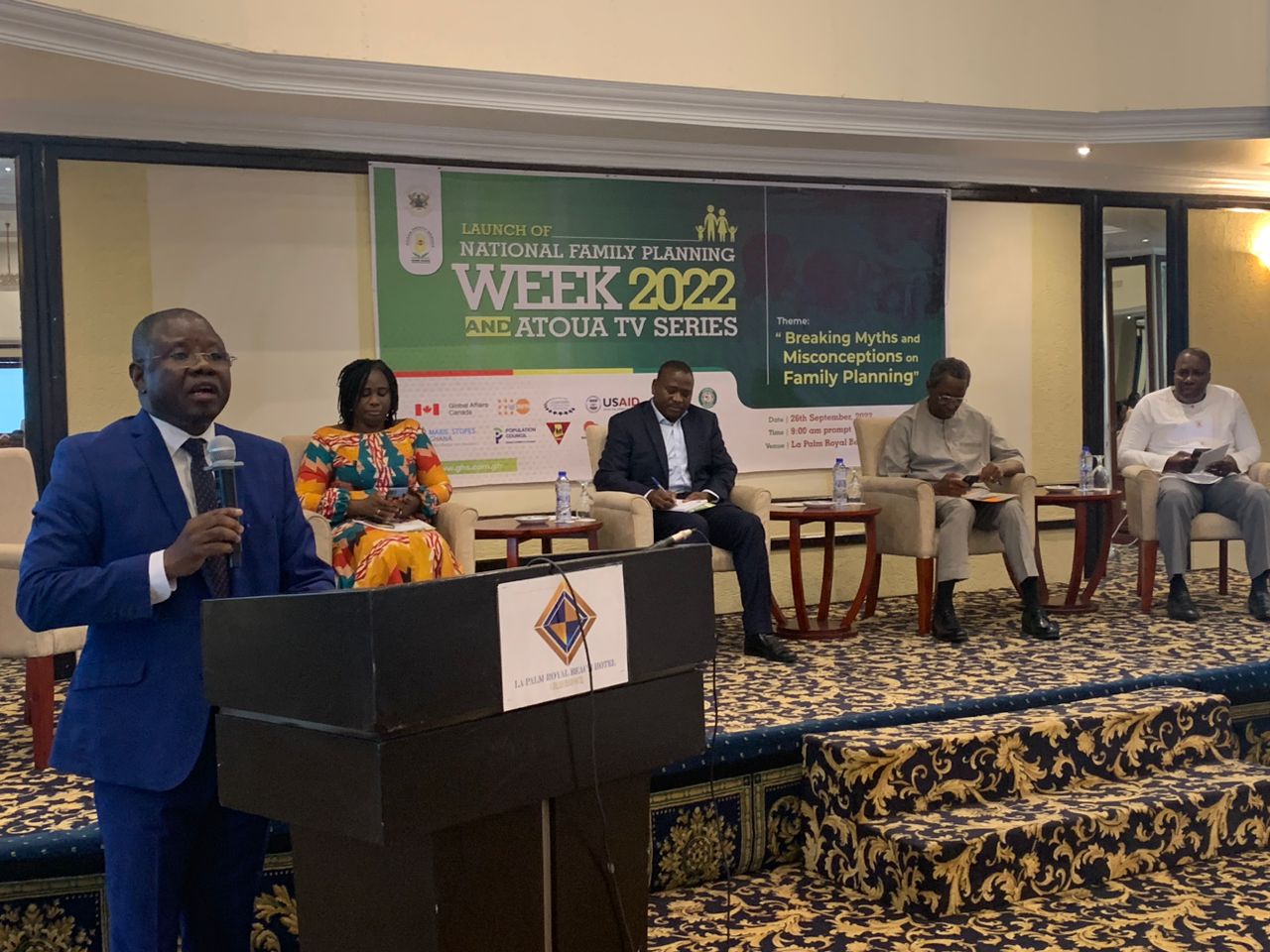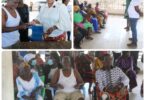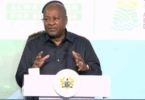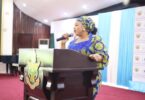Story by: Ishmael Barfi
As the month of September is set aside to create awareness and the importance of contraception in planning a family, the general public has been called upon to dispel the myths and misconceptions and patronize contraception for a healthy family planning.
According to Dr. Kofi Issah, Director, Family Health Division of the Ghana Health Service, contraception, hence family planning is an essential component of national health, therefore there is need to advocate and educate the populace on it.
To him, the use of abortion to get rid of unwanted pregnancies do increase mortality rate in the country and affecting the reproductive health of women and th nation at large.
Dr Kofi Issah, Director, Family Health Division of the Ghana Health Service,(GHS) made the passionate call at the official launch of 2022 Family Planning Week in Accra on 26th September, 2022.
This year’s Family Planning Week was organised by the United Nations Population Fund (UNFPA) in partnership with the Ghana Health Service and was under the theme: “Breaking Myths and Misconceptions on Family Planning” with the aim to increase public awareness, acceptance of family planning, dispelling the numerous myths and conceptions people have with regards to contraception and increased commitment to Family Planning as essential component of national health and socio-economic development.
Launching the UNFPA Family Planning Week 2022 Ghana edition, Dr Kofi Issah, Director, Family Health Division of the Ghana Health Service,(GHS), revealed that, four years after Ghana attained independence, the first family advice Centre was opened by the Christian Council of Ghana to offer advice to married couples on Family planning and responsible parenthood in 1961.
“The pioneering activities of the Planned Parenthood Association of Ghana (PPAG), the adoption of a population policy in 1969, and the establishment of a National Family Planning Programme in 1970 improved access to an important component of reproductive health services for families and communities”, he said.
To him, Ghana as a country has made progress in the total fertility rate and improving the lives of women and families.
Indicating that, within a quarter of a century, total births per woman reduced from 6.4 in 1988 to 4.2 in 2014 (GDHS) which had been a worrying.
He further explained that, the 2021 Population and Housing Census report shows that, household size has reduced from 4.4 in 2010 to 3.6 in 2021.
He acknowledged that, the above indicators show that, a lot of progress has been made in the area of family planning and other population strategies.
Though the universal knowledge in family planning is over 90%, he hinted that, there is still unmet need for contraception in the county.
Citing practice of contraception among married women with regards to modern methods remains low at 25% whilst 62% of adolescents who are sexually active have an unmet need for family planning (GMHS 2017).
He therefore attributed the above to a number of socio- economic and cultural factors, hence low utilization of available maternal health services, and family planning services are no exception to this.
“The fear of side effects, rumours, myths and misconceptions are the most frequently cited reasons for non -use of modern family planning methods. Poor attitude of health workers and provider bias are also deterrents to utilization and efforts are being made to address this”, he bemoaned.
This year’s activities he outlined include media and Stakeholder engagement meetings, Television and radio discussions, Provision of free services at selected locations.
The rest are Health talks to organized groups, Floats and other community mobilization and awareness creation activities.
He used the occasion to task stakeholders to deliver the key messages in a client- friendly manner and for communities to forge stronger partnerships with service providers, development partners, and others to address the factors contributing to the large unmet need for contraception.
Also speaking at the event, Dr. Joseph Aidoo of the Maris Stopes International Ghana indicated that, as a country, our context had changed and that, certain crucial gaps remains.
“ With a population of over 30 million, 55%0of whom are aged under 24,and one-in-five being adolescents (aged 10-19), 20%0of all women and 57% of adolescents (25-29 years) still report an unmet need for family planning.”, he averred.
However, he was of the view that, by the end of the decade, no abortion will be unsafe and everyone who wants contraception will be able to access it adding that, “we know this can be achieved”.
To him, their new strategy commits them to being a better partner and to confront the challenges they face with courage and innovation, and to closing the gap – once and for all – so that everyone is only one contact away from a safe provider.
“We must critically appreciate and address the contextual dynamics that, at a glance, seem unrelated to Family Planning but critically affect access to services”, he stated.
Indicating that, “We at MSI are very excited about this year’s theme focusing on myths and misconceptions. Several socio-cultural issues across our communities continue to hinder women and girls’ access to family planning services”.
“As we will all recall, the recent report from the pilot study on the inclusion of Family Planning on NHIS, gave us essential insight that removing cost alone is not enough to advance access; we need to develop and implement strategic SBCC interventions to address these myths and misconceptions while also building critical partnerships with other national development sectors”, he noted.
In that regard, Marie Stopes Ghana he noted is committed to contribute to achieving gender equality and universal health coverage in Ghana by enabling women to have access to accurate information that will empower them to choice and bodily autonomy.
And will continue to advance access to family planning services through our existing service delivery channels. We join all of you today to renew this commitment and look forward to our continuous partnerships.
Meanwhile, to address the reproductive health needs of adolescents such as teenage pregnancies an low low reproductive health services, a unique Television Series dubbed: “ATOUA” was also launched.
This is in collaboration with Marie Stopes Ghana and with funding support from the Global Affiars Canada.
A-T-O-U-A as literally understood in the Akan language and translated in English as, “should it happen to you!” seeks to educate young people on their reproductive health, highlighting the risks and unhealthy decisions that can affect their education and aspirations.
The message in ATOUA will be broadcasted through the tv series, social media and community outreaches to engage young people, parents and other relevant stakeholders on key issues related to their reproductive health.
The above TV is in response to year’s Family Planning (FP) week; “Breaking myths and misconceptions” hence a campaign to engage young people and support them with the right tools and services as they navigate puberty.
Global stakeholders in reproductive health, especially family planning across the globe have celebrated World Contraception Day on 26th September every year since 2008.
Ghana was among the pioneers and celebrated the first ever World Contraception Day, which was extended into a week- long celebration dubbed “Family Planning Week” in September 2011 and has since then become an annual event.
And United Nations Population Fund (UNFPA) is the only United Nations agency addressing family planning.
It is the largest supplier of donated contraceptives in the world, and its Supplies partnership alone has prevented an estimated 89 million unintended pregnancies, 26.8 million unsafe abortions, 254,000 maternal deaths and 1.6 million child deaths from 2008 – 2020.
Source: www.thenewindependentonline.com








